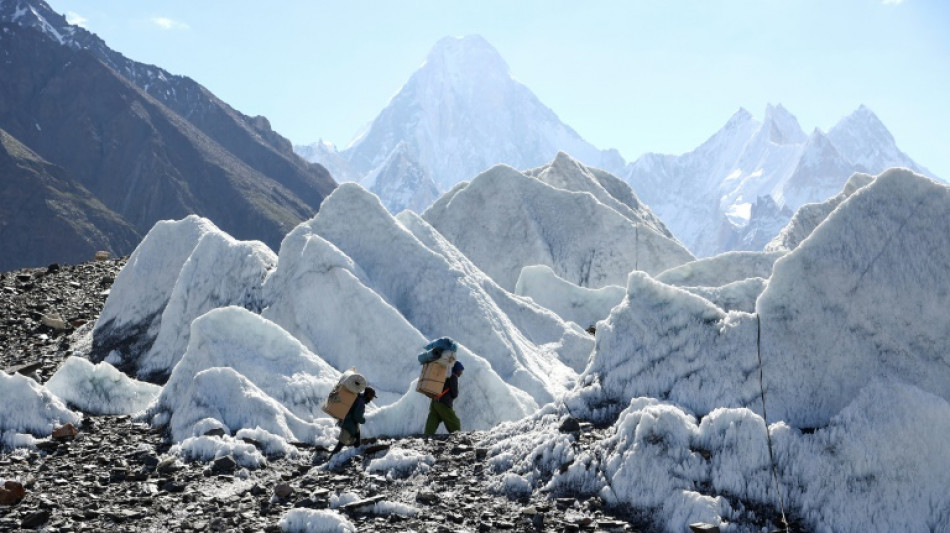
-
 France detects Russia-linked Epstein smear attempt against Macron
France detects Russia-linked Epstein smear attempt against Macron
-
Winter Olympics to open with star-studded ceremony

-
 Trump posts, then deletes, racist clip of Obamas as monkeys
Trump posts, then deletes, racist clip of Obamas as monkeys
-
Danone expands recall of infant formula batches in Europe

-
 Trump deletes racist video post of Obamas as monkeys
Trump deletes racist video post of Obamas as monkeys
-
Colombia's Rodriguez signs with MLS side Minnesota United

-
 UK police probing Mandelson after Epstein revelations search properties
UK police probing Mandelson after Epstein revelations search properties
-
Russian drone hits Ukrainian animal shelter

-
 US says new nuclear deal should include China, accuses Beijing of secret tests
US says new nuclear deal should include China, accuses Beijing of secret tests
-
French cycling hope Seixas dreaming of Tour de France debut

-
 France detects Russia-linked Epstein smear attempt against Macron: govt source
France detects Russia-linked Epstein smear attempt against Macron: govt source
-
EU nations back chemical recycling for plastic bottles
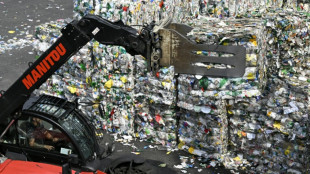
-
 Terror at Friday prayers: witnesses describe blast rocking Islamabad mosque
Terror at Friday prayers: witnesses describe blast rocking Islamabad mosque
-
Iran expects more US talks after 'positive atmosphere' in Oman

-
 US says 'key participant' in 2012 attack on Benghazi mission arrested
US says 'key participant' in 2012 attack on Benghazi mission arrested
-
Why bitcoin is losing its luster after stratospheric rise

-
 Arteta apologises to Rosenior after disrespect row
Arteta apologises to Rosenior after disrespect row
-
Terror at Friday prayers: witness describes 'extremely powerful' blast in Islamabad

-
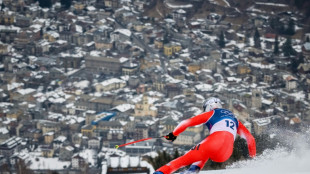 Winter Olympics men's downhill: Three things to watch
Winter Olympics men's downhill: Three things to watch
-
Ice dancers Chock and Bates shine as US lead Japan in team event

-
 Stellantis takes massive hit on 'overestimation' of EV demand
Stellantis takes massive hit on 'overestimation' of EV demand
-
Stocks rebound though tech stocks still suffer
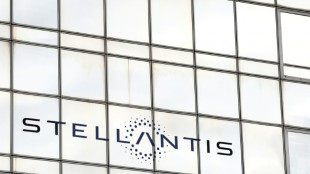
-
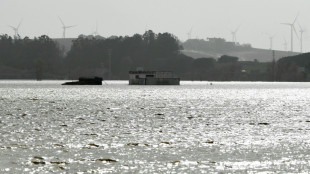 Spanish PM urges caution as fresh rain heads for flood zone
Spanish PM urges caution as fresh rain heads for flood zone
-
Iran says to hold more talks with US despite Trump military threats

-
 Russia accuses Kyiv of gun attack on army general in Moscow
Russia accuses Kyiv of gun attack on army general in Moscow
-
Cambodia reveals damage to UNESCO-listed temple after Thailand clashes

-
 Norway crown princess 'deeply regrets' Epstein friendship
Norway crown princess 'deeply regrets' Epstein friendship
-
Italy set for Winter Olympics opening ceremony as Vonn passes test

-
 England's Jacks says players back under-fire skipper Brook '100 percent'
England's Jacks says players back under-fire skipper Brook '100 percent'
-
Carrick relishing Frank reunion as Man Utd host Spurs

-
 Farrell keeps the faith in Irish still being at rugby's top table
Farrell keeps the faith in Irish still being at rugby's top table
-
Meloni, Vance hail 'shared values' amid pre-Olympic protests

-
 Olympic freestyle champion Gremaud says passion for skiing carried her through dark times
Olympic freestyle champion Gremaud says passion for skiing carried her through dark times
-
US urges new three-way nuclear deal with Russia and China

-
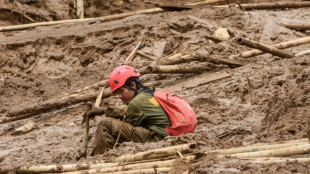 Indonesia landslide death toll rises to 74
Indonesia landslide death toll rises to 74
-
Hemetsberger a 'happy psychopath' after final downhill training

-
 Suicide blast at Islamabad mosque kills at least 31, wounds over 130
Suicide blast at Islamabad mosque kills at least 31, wounds over 130
-
Elton John accuses UK tabloids publisher of 'abhorrent' privacy breaches

-
 Lindsey Vonn completes first downhill training run at Winter Olympics
Lindsey Vonn completes first downhill training run at Winter Olympics
-
Digital euro delay could leave Europe vulnerable, ECB warns
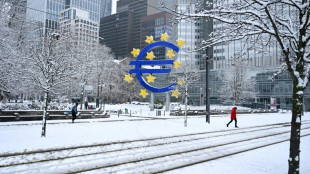
-
 Feyi-Waboso out of England's Six Nations opener against Wales
Feyi-Waboso out of England's Six Nations opener against Wales
-
Newcastle manager Howe pleads for Woltemade patience

-
 German exports to US plunge as tariffs exact heavy cost
German exports to US plunge as tariffs exact heavy cost
-
Portugal heads for presidential vote, fretting over storms and far-right
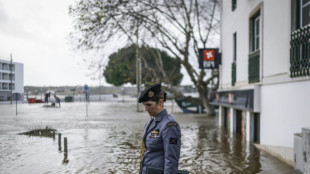
-
 Suicide blast at Islamabad mosque kills at least 30, wounds over 130: police
Suicide blast at Islamabad mosque kills at least 30, wounds over 130: police
-
Russia says Kyiv behind Moscow shooting of army general

-
 Greenland villagers focus on 'normal life' amid stress of US threat
Greenland villagers focus on 'normal life' amid stress of US threat
-
Iran, US hold talks in Oman after Trump military threats

-
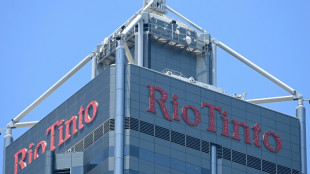 Stocks waver as tech worries build
Stocks waver as tech worries build
-
Dupont, Jalibert click to give France extra spark in Six Nations bid


UN report warns of catastrophic risks to Earth systems
Melting glaciers, unbearable heat and space junk: a month before crunch climate talks in the United Arab Emirates, a UN report published Wednesday warns about irreversible impacts to the planet without drastic changes to connected social and physical systems.
The Interconnected Disaster Risks Report identifies thresholds it calls "risk tipping points," defined as "the moment at which a given socioecological system is no longer able to buffer risks and provide its expected function" -- after which the risk of catastrophe increases significantly.
It focuses on six areas that connect the physical and natural world with human society: accelerating extinctions, groundwater depletion, mountain glacial melt, space debris, unbearable heat and an "uninsurable" future.
"As we indiscriminately extract our water resources, damage nature and biodiversity, and pollute both Earth and space, we are moving dangerously close to the brink of multiple risk tipping points that could destroy the very systems that our life depends on," said Zita Sebesvari, the report's lead author.
For example: underground water reservoirs represent an essential freshwater resource around the world and today mitigate half of the losses of agriculture caused by droughts, which are being exacerbated by climate change.
But aquifers themselves are now depleting faster than they can be naturally replenished: Saudi Arabia has already crossed the groundwater risk tipping point while India isn't far behind.
In the case of accelerating extinctions, the report highlights the cascading effects of extinctions throughout food chains.
"The gopher tortoise, which is threatened with extinction, digs burrows that are used by more than 350 other species for breeding, feeding, protection from predators and avoiding extreme temperatures," the report said.
If the gopher tortoise goes extinct, the gopher frog that helps control insect populations will likely follow, triggering effects throughout the entire forest ecosystem of the southeastern United States.
Mountain glaciers that store vast amounts of freshwater meanwhile are melting twice as fast as they did in the past two decades.
"Peak water" -- the point when a glacier produces its maximum amount of water runoff due to melting -- has been reached or is expected to be reached within the next ten years across small glaciers in Central Europe, Western Canada and South America.
"The 90,000+ glaciers of the Himalayas, Karakoram and Hindu Kush mountains are at risk, and so are the nearly 870 million people that rely on them," the report said.
In the case of space junk, the report warns Earth's orbit is in danger of becoming so full of debris that a collision triggers a chain reaction that threatens humanity's ability to operate satellites -- including those that provide vital early warning monitoring against disasters.
The report finds most solutions currently being implemented focus on delaying problems rather than genuinely addressing the root causes.
"We need to understand the difference between adapting to risk tipping points and avoiding them, and between actions that delay looming risks and those that move us towards transformation," it said.
O.Salim--SF-PST



